KU PharmTox Newsletter - Fall 2023
Note From the Chair
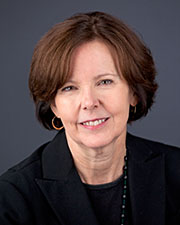 Welcome to the 2023 newsletter from the Department of Pharmacology and Toxicology. We had another great year of research and teaching. We accepted a record number of new graduate students in the fall, five PhD students and one on-campus MS student and continue to recruit new online MS students. Generous donations to the department and research grants from the National Institutes of Health support these new students as well as the more senior graduate students in the department. We are fortunate to have had a great scientific seminar series this year with outstanding speakers, primarily in the field of Alzheimer’s disease. I hope you enjoy reading the newsletter and consider visiting us in the near future. Wishing you happy holidays and a prosperous new year!
Welcome to the 2023 newsletter from the Department of Pharmacology and Toxicology. We had another great year of research and teaching. We accepted a record number of new graduate students in the fall, five PhD students and one on-campus MS student and continue to recruit new online MS students. Generous donations to the department and research grants from the National Institutes of Health support these new students as well as the more senior graduate students in the department. We are fortunate to have had a great scientific seminar series this year with outstanding speakers, primarily in the field of Alzheimer’s disease. I hope you enjoy reading the newsletter and consider visiting us in the near future. Wishing you happy holidays and a prosperous new year!
Graduating Student Updates
We are proud to announce the graduation of two students in the Pharmacology & Toxicology department.
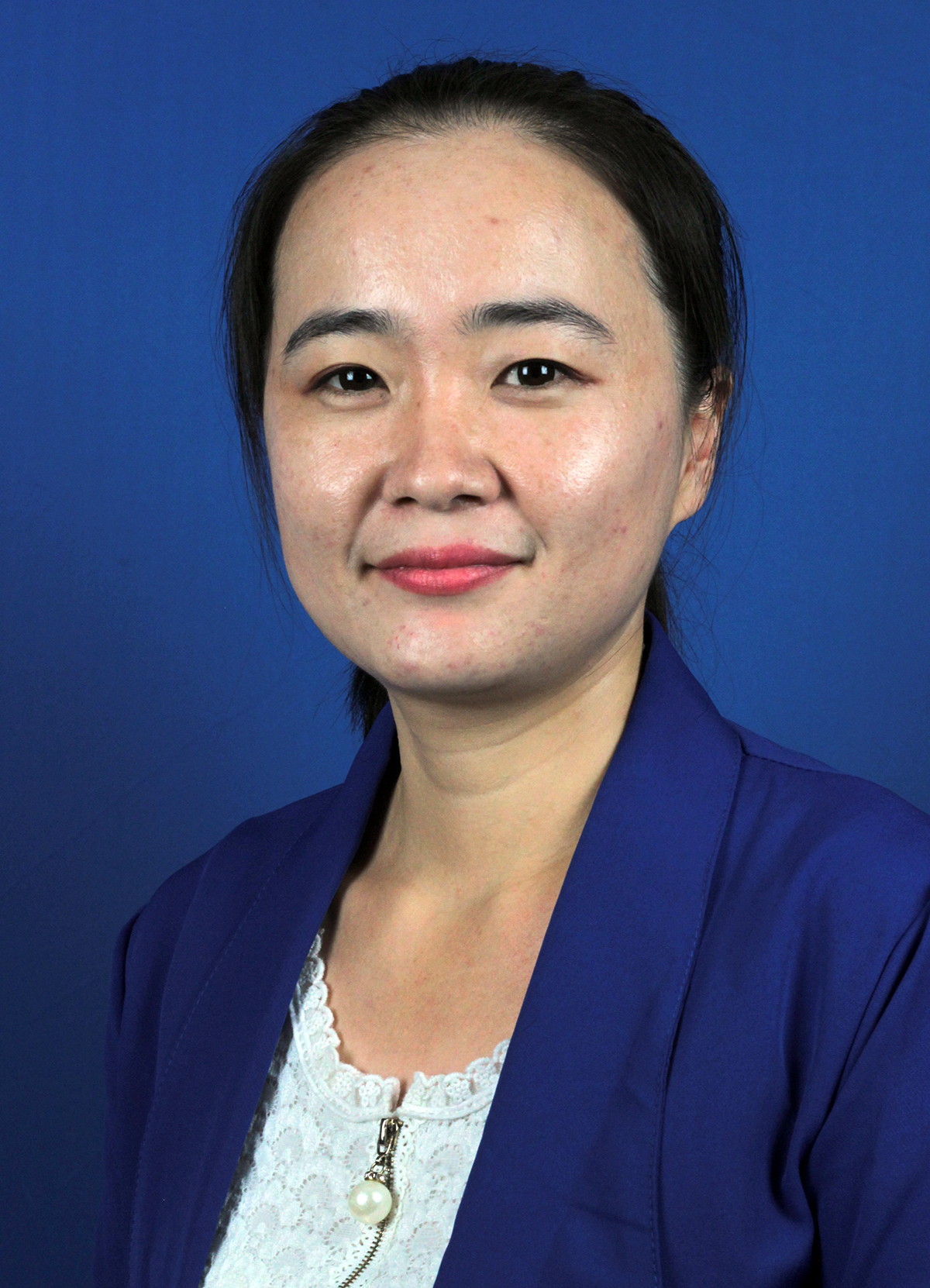
Xin Zhang
Xin Zhang received her Ph.D. degree in spring 2023 with Dr. Liqin Zhao as her advisor. Dr. Zhang’s dissertation was entitled “ApoE2-mediated Neuroprotection Against AD: From Mechanism to Translation” and was defended on May 4. She is now a postdoctoral research fellow at Dana-Farber Cancer Institute, Harvard Medical School, in Boston, Massachusetts.

Suraj Niraula
Suraj Niraula completed his Ph.D. degree at KU in summer 2023. Dr. Jai Subramanian was his mentor. Dr. Niraula’s defended his dissertation on July 12. It was entitled “Neuronal Basis of Visual Recognition Memory Deficits in Alzheimer's Disease.” He is currently working as a postdoctoral researcher in Dr. Subramanian’s lab.
Congratulations to all these graduates!
Graduate Student News
Lina Nerio
Lina Nerio, Ph.D. student, received a $1,500 Doctoral Student Research Fund Award this fall. The Doctoral Student Research Fund (DSRF) is designed to support KU doctoral students on the Lawrence/Edwards Campus who need assistance to carry out research that advances progress toward the degree. Funds are limited, with an average of only 30 awards per year. A doctoral student is eligible to receive one (1) award during their doctoral career. Award amounts vary, with a maximum award of $1,500.
Candidacy Oral Comprehensive Exam
Two of our Ph.D. students, Lina Nerio and Nicholas Pritchett, passed their Candidacy Oral Comprehensive Exam.
Mossberg Honors Symposium
Doctoral students gave presentations and presented posters at the 38th Mossberg Honors Symposium held January 11, 2023 in the KU School of Pharmacy.
Oral Presentations:
- Kyle Gossman - “Structural Connectivity of the Fore- and Mid-brain of Male and Female Prairie Voles”
- Suraj Niraula - "Excitation-inhibition Imbalance Disrupts Visual Familiarity in Amyloid and Non-pathology Conditions”
Posters:
- Tienju Wang and Kun Jia - “Non-obese Male Patients with Alzheimer’s Disease are Vulnerable to Decrease in Plasma Leptin”
- Oliver L’Esperance, Garrett Davidson, and Josh McGhee - "Visual Cortical Hyperactivity and Functional Connectivity Alterations in a Mouse Model of Alzheimer’s Disease”
- Punam Rawal - “Glial Expression and Immunomodulatory Role of Clusterin in the Brain”
- Kun Jia and Tienju Wang - “Type I IFN Response-dependent Microglia MEF2C Deregulation and Neuroinflammation in Alzheimer's Disease”
- Yunwanbin Wang and Shuwen Yue - “Activation of Prefrontal Cortex to Ventral Tegmental Area Projection Attenuates Early Social Isolation Stress-Potentiated Heroin Seeking”
- Shuwen Yue and Yunwanbin Wang - “Insulin-like Growth Factor 1 and Its Receptor in Prefrontal Cortex Regulates Heroin Addiction-induced Behavioral and Synaptic Plasticity”
New Graduate Students

Sai Sreeja Meka
Sai Sreeja earned her B.S. degree in Pharmacy from Jawaharlal Nehru Technological University Hyderabad, Hyderabad, India. She joins our M.S. program in Dr. Heng Du’s lab. Her passion for health care began during her undergraduate studies. Sai Sreeja hopes to be a researcher after graduation.
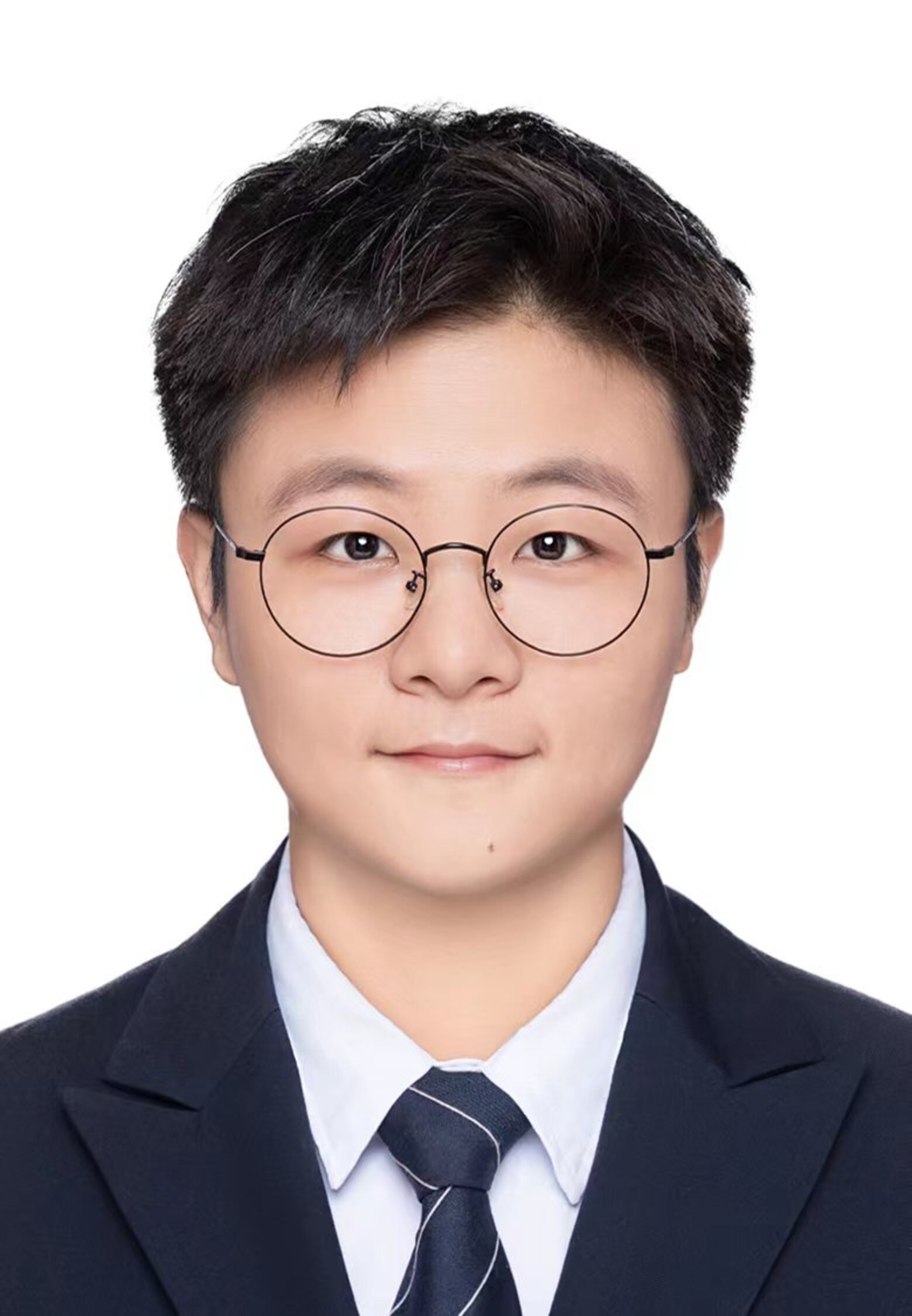
Lu Chen
Lu is from Shanghai, China and is part of the Ph.D. program. Dr. Zijun Wang is her advisor. She graduated in 2011 with her bachelor’s degree in pharmacy and in 2015 with her master’s degree in neurobiology both from AnHui Medical University located in Hefei, China. After graduation, Ms. Chen worked as a Clinical Analyst and later as a research assistant before pursuing her Ph.D. degree.
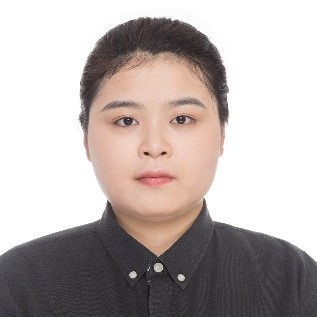
Yanting Chen
Yanting comes to our Ph.D. program from Jinan, China. She holds a bachelor’s degree in clinical medicine from Shandong First Medical University and a master’s degree in neurology from Shandong University, both located in Jinan. While completing her M.S. degree, her research was directly related to Alzheimer’s disease and mitochondria. Dr. Du is Yanting’s mentor.

Diksha Chugh
Diksha is a new Ph.D. student and a member of Dr. Liqin Zhao’s lab. She earned her B.S. degree in Pharmacy from Delhi Pharmaceutical Sciences and Research University, New Delhi, India. Ms. Chugh’s interest in the field of drug discovery and development began during her participation in an internship program.
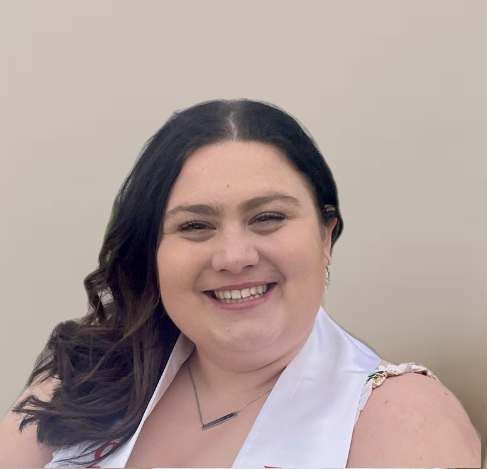
Camryn Lowe
Camryn is from Roscommon, Michigan and is joining our Ph.D. program. She received her bachelor’s degree from Ferris State University in Big Rapids, Michigan. Camryn is studying in Dr. Adam Smith’s lab. It is Camryn’s goal to develop drugs to help treat people with post-traumatic stress and other psychiatric disorders. She would like to make treatment more accessible to people.
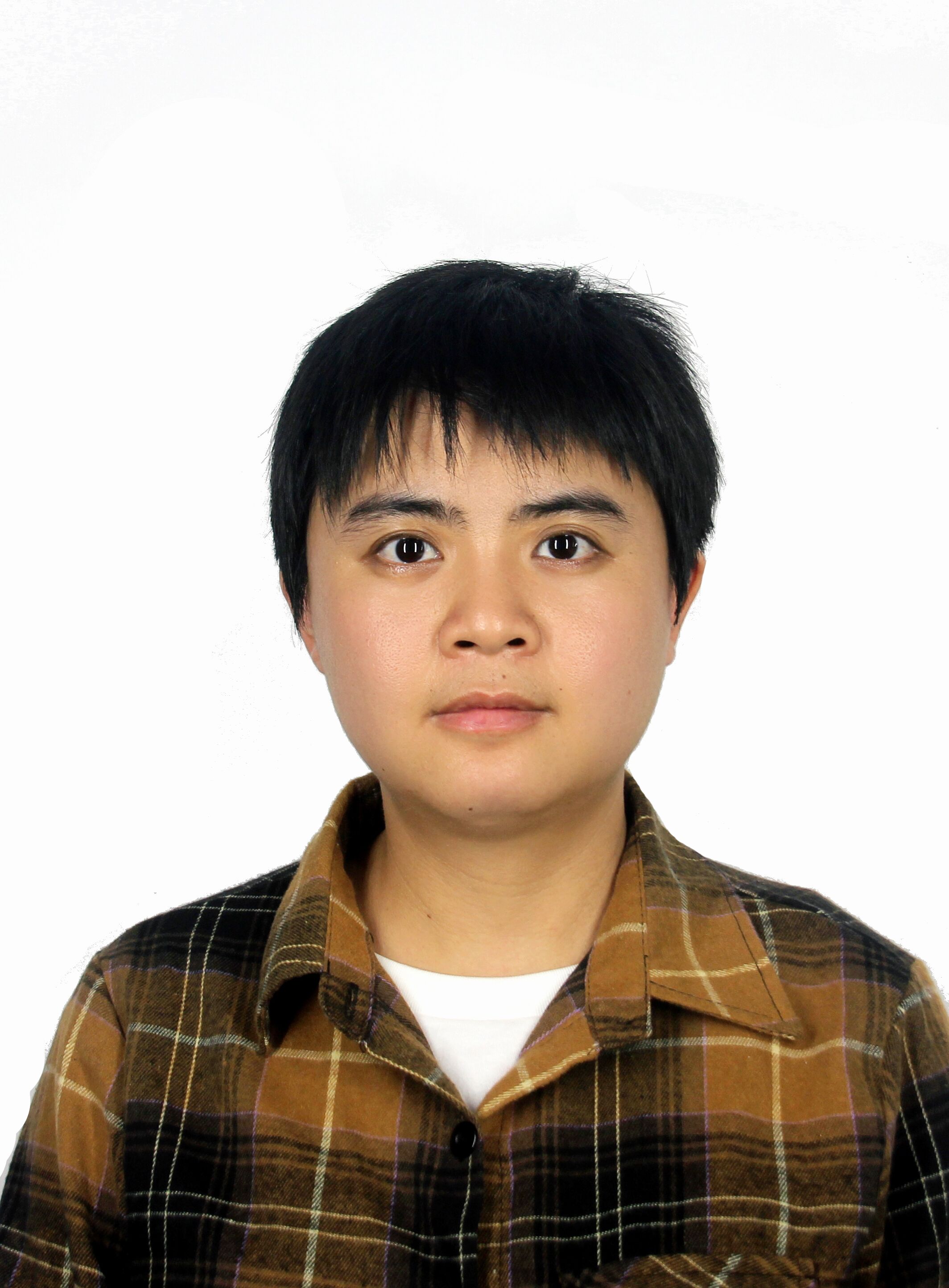
Yan Luo
Yan joins our Ph.D. program with Dr. Zhao as her mentor. She graduated in 2014 from Jiangxi Agricultural University in Nanchang, China with a pharmaceutical engineering bachelor’s degree. Yan earned her master’s degree in pharmacology in 2017 from China Pharmaceutical University, Nanjing, China.
Welcome Picnic
The Pharmacology & Toxicology department annual welcome picnic was held on October 3 at “Dad” Perry Park. We welcomed one MS student and five Ph.D. students to our program this fall. The picnic gave our students, faculty, and staff a chance to socialize and get to know each other. The food was delicious, and it was a beautiful, fall evening. Special thanks to Adrianna Kirckof and Camryn Lowe for organizing the picnic and Oliver L’Esperance for grilling.
Lab Spotlight
Moskowitz Lab
Awarded a one year $25,000 pilot grant from the KU Alzheimer’s Disease Center: “Oxidation of Apolipoprotein J and Alzheimer's disease”.
Subramanian Lab
Grant Funding:
Awarded an NIH grant RF1AG081575 in collaboration with Columbia University to study whether detoxifying advanced glycation end products improves synaptic plasticity and memory in a mouse model of Alzheimer's disease.
Wang Lab
During the summer of 2023, undergraduate research assistant, Tyler Sarovich, received an internship from the National Institute of Drug Abuse (NIDA) Summer Research Internship Program.
Zhao Lab
Grant Awards:
R01AG071682S1 08/01/2023 – 07/31/2025
Reprogramming Circulating Lipidome by rhApoE2
Total budget: $349,774
Role: PI
A new R01 grant has been awarded to Dr. Teruna Siahaan, on which Dr. Liqin Zhao serves as a co-PI. The project is titled “A Novel Method to Enhance Drug Delivery to the Brain”; funding period: 12/01/2023 – 11/30/2028; total budget: $2,269,979
Dr. Zhao’s lab made history by being awarded over one million ($1,123,615) in NIH research funding just in 2023 alone.
Dr. Zhao was appointed as a standing member to the National Institutes of Health (NIH) study section “Neural Oxidative Metabolism, Mitochondria and Cell Death (NOMD)” 2023-2027.
Spring 2023 Commencement
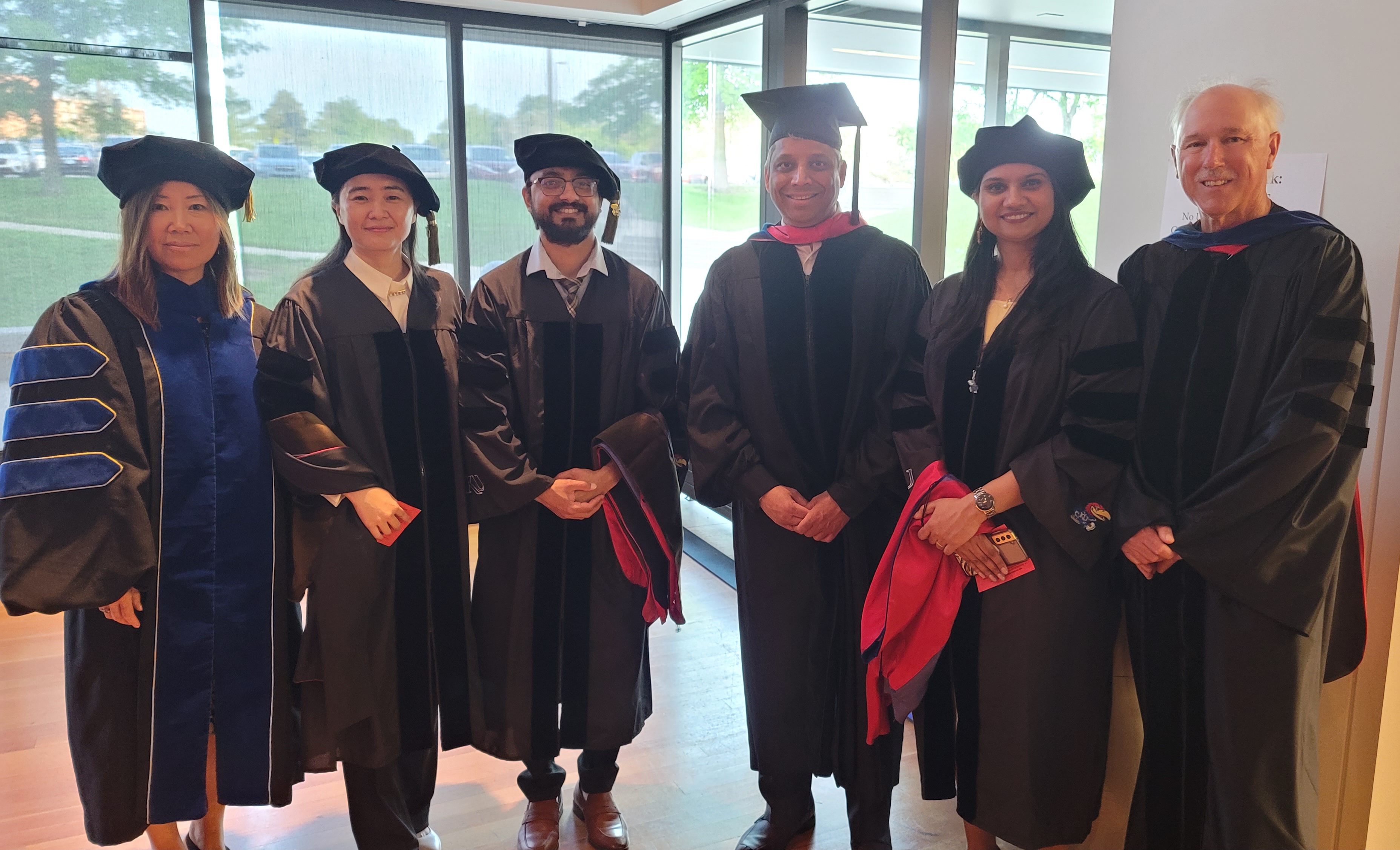 The Pharmacology & Toxicology department had three graduate students participate in the Spring 2023 graduation. Xin Zhang and Suraj Niraula were both 2023 graduates. Sukhmanjit Kaur graduated in 2022 but unfortunately, that graduation ceremony was cancelled due to inclement weather. Congratulations Xin, Suraj, and Sukhmanjit!
The Pharmacology & Toxicology department had three graduate students participate in the Spring 2023 graduation. Xin Zhang and Suraj Niraula were both 2023 graduates. Sukhmanjit Kaur graduated in 2022 but unfortunately, that graduation ceremony was cancelled due to inclement weather. Congratulations Xin, Suraj, and Sukhmanjit!
38th Annual Mossberg Honors Symposium and Poster Sessions
The 38th Annual Mossberg Honors Symposium was held Wednesday, Jan. 11 in the School of Pharmacy.
Dr. Justin Pennington gave the keynote address titled “From Work to Impact: My Journey to Advancing Global Human Health.” Dr. Pennington is associate vice president of small molecule analytical research and development at Merck Research Laboratories. He was the 2023 KU School of Pharmacy Graduate Program Distinguished Alumnus. In addition to the keynote address, students and post-docs from each School of Pharmacy department gave oral research presentations. The Pharmacology & Toxicology presentations were given by Kyle Gossman and Suraj Niraula. Mr. Gossman’s presentation was entitled “Structural Connectivity of the Fore- and Mid-brain of Male and Female Prairie Voles” and Mr. Niraula’s seminar was entitled “Excitation-inhibition Imbalance Disrupts Visual Familiarity in Amyloid and Non-pathology Conditions.” The following individuals participated in the poster session: Tienju Wang, Jing Tian, Kun Jia, Oliver L’Esperance, Garrett Davidson, Joshua McGhee, Punam Rawal, Yunwanbin Wang, Archana Singh and Guohui Li.
From Our Alumni - Wenqi Cui, Ph.D.
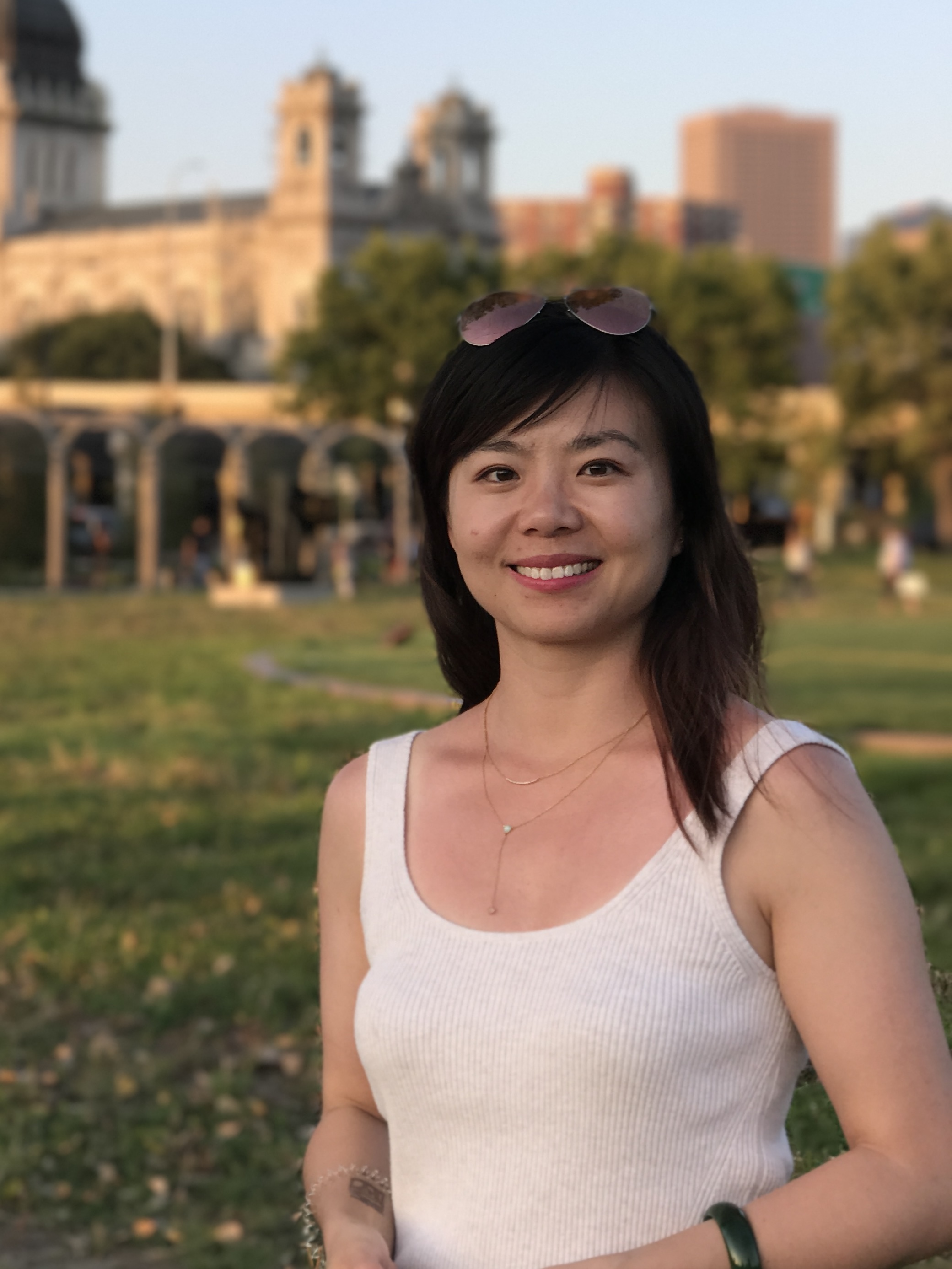
Before I joined the Pharmacology and Toxicology Ph.D. program at KU in 2013, I worked as a research assistant in Dr. Jeff Staudinger’s lab for two years. The working experience in his lab and my passion for drug development stimulated my deep interest in pharmacology, and I finally decided to pursue my doctorate in our department. My graduate research in Dr. Staudinger’s lab was focused on post-translational modifications on the nuclear receptor PXR in inflammation, and these works were published as four original research articles. Dr. Muma and Dr. Shi provided tremendous support and guidance as my dissertation committee, which eased my way to obtain my Ph.D. in four years.
After my graduation, I developed a great interest in autophagy and non-alcoholic fatty liver diseases (NAFLD). Therefore, I joined Dr. Doug Mashek's lab at the University of Minnesota in 2017 to study lipid metabolism and lipophagy in NAFLD, where I received excellent training on lipid biology in cells and in animal models with a specialty in advanced imaging. Even though I enjoyed my research and the field, I wanted to get more experience in translational research because my passion is in drug development that has an immediate impact on improving human health. I was fortunate to join Dr. Yaron Rotman’s group at NIDDK, where I had the privilege to work with expert physician scientists in liver diseases. My project at NIDDK is to investigate the mechanism of a genetic factor in NASH fibrosis, which is a front-runner target in clinical trials treating NASH with unknown mechanisms. These trainings and experiences broadened my knowledge from cell biology to animal physiology in NASH fibrosis and provided insights into preclinical drug development research. More importantly, I became an independent scientist to conduct research from benchwork to project management in collaboration with contractors and industrial partners.
Now I am on the way to start a new chapter of my career as a research scientist at Takeda Pharmaceuticals this fall. It was a long and fulfilling journey from KU to Takeda. I appreciate each step of the way and all the help I received from my mentors, the professors at KU, and the amazing colleagues I worked with. As a woman scientist, I especially appreciate the Pharmacology and Toxicology Department, which provided an environment that empowered me and eliminated many gender-biased obstacles that still existed. I am also extremely grateful for completing my Ph.D. training in our department, and I cherish all the moments I interacted with our amazing professors and my fellow students. Those memories will always hold a special place in my heart.
Dr. Liqin Zhao and Dr. Heng Du promoted to full professor
We would like to announce the promotions of Dr. Liqin Zhao and Dr. Heng Du to full professor in the Pharmacology & Toxicology Department.
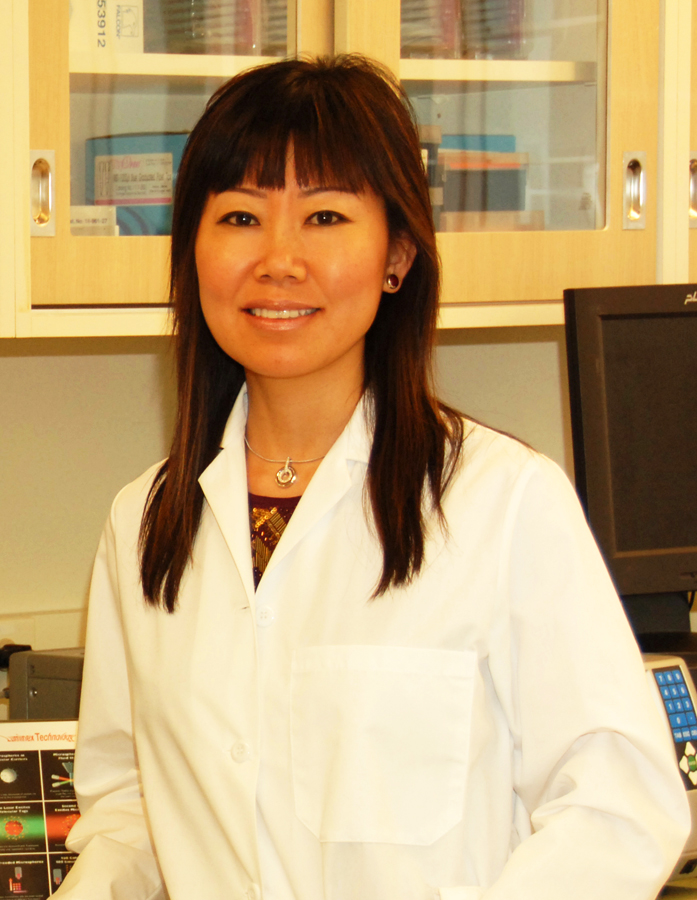 Dr. Zhao received her Ph.D. in Pharmaceutical Sciences from Shenyang Pharmaceutical University and completed a postdoctoral fellowship at Beijing Institute of Pharmacology and Toxicology. Dr. Zhao’s research focuses on neurobiology of aging and etiology of sporadic Alzheimer’s disease (sAD). This is accomplished through identifying sex and genetic influences on brain metabolism and microglial homeostasis.
Dr. Zhao received her Ph.D. in Pharmaceutical Sciences from Shenyang Pharmaceutical University and completed a postdoctoral fellowship at Beijing Institute of Pharmacology and Toxicology. Dr. Zhao’s research focuses on neurobiology of aging and etiology of sporadic Alzheimer’s disease (sAD). This is accomplished through identifying sex and genetic influences on brain metabolism and microglial homeostasis.
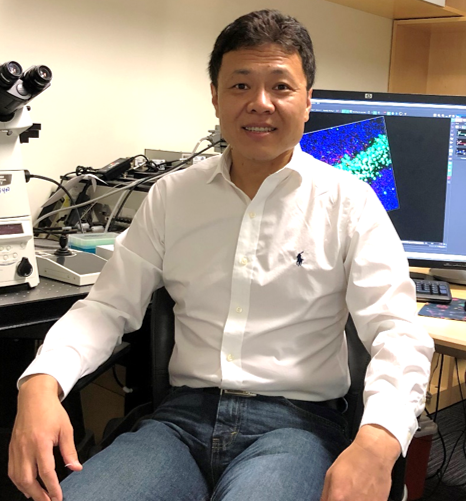 Dr. Du received his Ph.D. from Sun Yat-sen University and completed a postdoctoral fellowship in the Department of Surgery and Taub Institute for Research on Alzheimer’s Disease and the Aging Brain at Columbia University Medical Center. Dr. Du’s research focuses on the molecular mechanisms of neurodegeneration in neurodegenerative diseases. The research emphasizes Alzheimer’s disease and therapeutic approaches for the treatment of the disease.
Dr. Du received his Ph.D. from Sun Yat-sen University and completed a postdoctoral fellowship in the Department of Surgery and Taub Institute for Research on Alzheimer’s Disease and the Aging Brain at Columbia University Medical Center. Dr. Du’s research focuses on the molecular mechanisms of neurodegeneration in neurodegenerative diseases. The research emphasizes Alzheimer’s disease and therapeutic approaches for the treatment of the disease.
Congratulations Dr. Zhao and Dr. Du!
Liqin Zhao develops intervention for metabolic diseases like diabetes, stroke and heart disease
An investigator with the University of Kansas School of Pharmacy has filed an invention disclosure, part of a provisional patent application with the United States Patent and Trademark Office, for a treatment that could apply to heart disease, stroke and a host of other human diseases related to metabolism.
Liqin Zhao, KU associate professor of pharmacology & toxicology and investigator at the Life Span Institute, has researched the human ApoE gene for years. A major focus of her work centers on how the ApoE2 variant — one of three major isoforms of ApoE gene — might protect people from Alzheimer’s disease.
Now, based upon a discovery made during her Alzheimer’s-disease work, Zhao is patenting a way to leverage rhApoE2 to regulate blood lipids. Lipids, like fats and oils, are building materials of life at the cellular level that also are tied to heart disease and other metabolic diseases.
Beyond the Lab Seminar Series
The Beyond the Lab Seminar Series explores topics for students, postdocs, and researchers outside of the classroom and lab settings. This provides individuals with an expanded outlook for future career advancement.
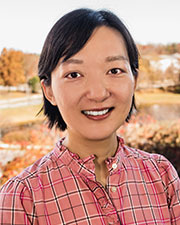
Pan Pan, Ph.D.
Senior Scientist, AstraZeneca
Don’t Be Afraid of Change—My Journey After Graduation
Friday April 28, 2023
Dr. Pan earned her Ph.D. from the KU Pharmacology & Toxicology program in Spring 2014. Dr. Rick Dobrowsky was her mentor and advisor. Dr. Pan’s work is in the field of cancer immunology and cell biology with extensive experience with in vivo animal and in vitro molecular studies.
Dr. Dobrowsky stated, “Dr. Pan provided a very nice overview of her research transition from her Ph.D. work in neuroscience to her postdoctoral and professional efforts in cancer biology at AstraZeneca. A strength of her talk was the message to not fear change and accept new scientific challenges that build on your existing strengths. In Pan’s case, she built upon her in vivo pharmacology skills developed as a graduate student and applied them to cancer biology to fill niches needed by her employers. This necessitated her to address new scientific challenges and surgery techniques to drive projects forward. To increase your chance of getting noticed for a first interview when applying to positions within pharma, she provided a clear message of the need to briefly and concisely present your strongest skill sets that match keywords in job descriptions. It was a great overall message and Pan continues to use her skills to climb the career ladder at AstraZeneca.”
Scientific Seminar Series
The KU Department of Pharmacology & Toxicology's Scientific Seminar Series features prominent researchers from KU, the United States, and the world.

Yueming Li, Ph.D
Biochemist head of Biochemistry and Molecular Pharmacology Laboratory at Memorial Sloan Kettering Cancer Center, New York, New York
Modulation of γ-secretase in Alzheimer and Cancer
April 11, 2023
Dr. Heng Du, Pharmacology & Toxicology Department professor, stated, “Dr. Li is a known expert in the AD and γ-secretase research field. In his recent talk, Dr. Li gave a historical review of γ-secretase and introduced interesting work from his group on a newly identified function of interferon signaling in the regulation of γ-secretase activity. This groundbreaking finding has established a sophisticated link between neuroinflammation, antiviral innate immune signaling, and amyloidosis in, at least, a subgroup of AD patients and thus opens a new therapeutic avenue to mitigate AD. The audience also demonstrated great enthusiasm for Dr. Li’s interferon signaling story.”
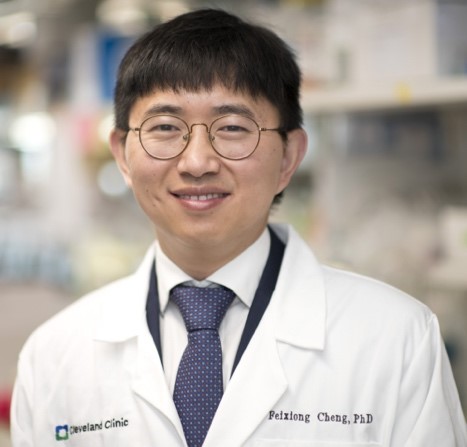
Feixiong Cheng, Ph.D.
Assistant Professor in the Department of Molecular Medicine, Case Western Reserve University, Cleveland, Ohio
Harnessing Genetics, Genomics, Endophenotype, and Network Medicine for Alzheimer's Disease Target and Drug Discovery
June 13, 2023
Dr. Cheng is trained as a computational biologist and he combines various tools to understand several human complex diseases. These diseases include Alzheimer’s disease, cardio-oncology, pulmonary vascular diseases, and cancer.
Dr. Liqin Zhao, Pharmacology & Toxicology Department professor, stated, “I think Dr. Cheng’s seminar was informative in demonstrating how computational tools, including machine learning techniques, can facilitate drug development.”
Dr. Zijun Wang, Pharmacology & Toxicology department professor, commented, “Dr. Cheng’s talk focused on unraveling therapeutic targets for Alzheimer’s disease (AD) through the integration of multi-omics databases. Specifically, his research serves as an excellent example for leveraging existing large-scale whole genome/exome sequencing data and patient databases. Using artificial intelligence/machine learning methods, Dr. Cheng demonstrated the efficacy of network analysis in identifying potential druggable targets for treating AD.”
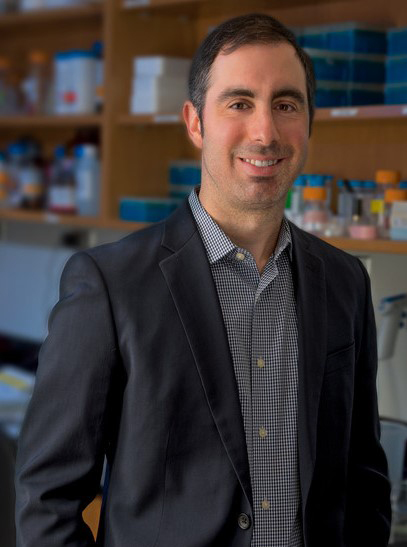
Jeremy Herskowitz, Ph.D.
Professor of Neuroscience, Center for Neurodegeneration and Experimental Therapeutics, Department of Neurology, The University of Alabama at Birmingham, Birmingham, Alabama
Mechanisms of Synaptic Resilience to Alzheimer’s disease
Dr. Herskowitz is working to find more effective treatments for Alzheimer’s Disease and Frontotemporal Dementia.
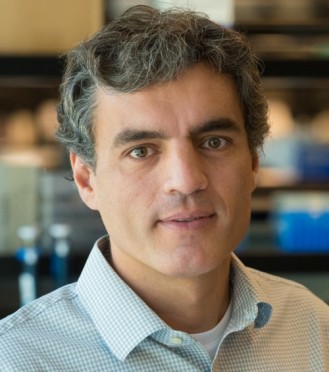
Jorge Palop, Ph.D.
Associate Investigator, Gladstone Institutes, and Associate Professor in the Neurology department at UC San Francisco, San Francisco, California
Network Abnormalities and Interneuron Dysfunction in Alzheimer’s Disease
Dr. Palop’s research strives to identify molecular, circuit, and network mechanisms of cognitive dysfunction to develop therapeutic approaches to restore brain functions in Alzheimer’s and other disorders.
Dr. Jai Subramanian, Pharmacology & Toxicology department professor, stated, “Dr. Jeremy Herskowitz and Dr. Jorge Palop delivered insightful seminars on their respective research areas in Alzheimer’s disease. Dr. Herskowitz’s presentation focused on the role of ‘hub’ proteins in cognitive resilience. His innovative approach combined protein network and synaptic analyses to shed light on the mechanisms that maintain cognition despite tissue pathology. On the other hand, Dr. Palop’s seminar centered on the intricate relationship between neuronal oscillations and individual neuronal activity. He also introduced machine learning-based methodologies for quantifying subtle behavioral deficits in mouse models of Alzheimer’s disease. Both seminars were of exceptional quality, providing a rich educational experience for the students.”
Diksha Chugh, Ph.D. student, stated, “The seminars were informative. I liked the work their labs focused on, especially Dr. Palop's approach to machine learning and its use to assess behavior motifs in mice. I am looking forward to more such engaging seminars by our department.”
Faculty Recent Publications
Pharmacologic Targeting of the C-Terminus of Heat Shock Protein 90 Improves Neuromuscular Function in Animal Models of Charcot Marie Tooth X1 Disease.
Kaur S, Zhang X, Patel S, Rodriguez YA, Luther KJ, Alghafli G, Lang RM, Abrams CK, Dobrowsky RT. ACS Pharmacol. Transl. Sci. 2023; 6, 306-319.
Liver-expressed antimicrobial peptide 2 elevation contributes to age-associated cognitive decline.
Tian J, Guo L, Wang T, Jia K, Swerdlow RH, Zigman J, Du H. JCI Insight 2023 May 22;8(10):e166175. doi: 10.1172/jci.insight.166175. PMID: 37212281.
Mitochondrial Dysfunction Links to Impaired Hippocampal Serotonin Release in a Mouse Model of Alzheimer's Disease.
Tian J, Stucky CS, Wang T, Muma NA, Johnson M, Du H. J Alzheimers Dis. 2023;93(2):605-619. doi: 10.3233/JAD-230072. PMID: 37066917.
Excitation-inhibition imbalance disrupts visual familiarity in amyloid and non-pathology conditions.
Niraula S, Doderer JJ, Indulkar S, Berry KP, Hauser WL, L'Esperance OJ, Deng JZ, Keeter G, Rouse AG, Subramanian J. (2023) Cell Rep. 42:111946.
IGF-1 Microinjection in the Prefrontal Cortex Attenuates Fentanyl-Seeking Behavior in Mice.
Li G, Yue S, Wang Y, Singh A, Wang ZJ. Int J Neuropsychopharmacol. 2023 May 31;26(5):359-371. doi: 10.1093/ijnp/pyad013. PMID: 36951642.
Opposing Effects of ApoE2 and ApoE4 on Glycolytic Metabolism in Neuronal Aging Supports a Warburg Neuroprotective Cascade against Alzheimer’s Disease..
Zhang X, Wu L, Swerdlow RH, Zhao L. Cells. (2023) 12(3):410:1-21.
The Support of Our Donors Makes All the Difference
Thank you for your interest in supporting the Pharmacology & Toxicology Department. Your support allows the Department to provide resources for students and can make a profound impact no matter the size. Even small amounts given over time can accumulate to create substantial resources for the department.
Donations allow us to continue the excellence you have come to expect. Donations to the Pharmacology and Toxicology Graduate Student Fund help support our students and allow us to bring in outside speakers.
For a lasting impact on the department, major gifts can establish endowed funds that can be named for you or for someone else and provide financial support in perpetuity.
To make a donation, visit KU PharmTox Give or contact our development director, Beth Bucklin, at bbucklin@kuendowment.org or 785-832-7477.
Pharmacology & Toxicology | University of Kansas School of Pharmacy
Malott Hall, Room 5064, Wescoe Hall Drive, University of Kansas, 66045
pharmtox@ku.edu | 785-864-4002